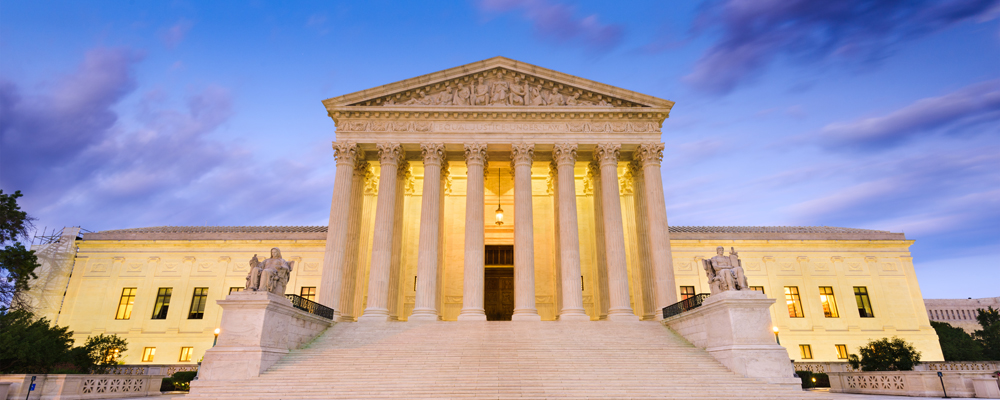With COVID-19 infection rates still top of mind, more employers are requiring employees to be fully vaccinated. From airlines, local government, healthcare, and more, vaccine mandates are becoming more commonplace. Federal contractors may yet join the growing list of employers that must enforce a vaccine mandate.
The federal contractor vaccine mandate was supposed to take effect in mid-January. For weeks, contractors were gathering documentation from vaccinated employees, reviewing the requirements for new contracts, and figuring out how to implement the mandate on-site.
Since OSHA’s vaccine mandate was recently shut down in the Supreme Court – and then OSHA subsequently withdrew its mandate – the status of the federal contractor mandate is in limbo.
Background and Current Status of the Vaccine Mandate
The vaccine mandate for federal contractors isn’t new. Executive Order (EO) 14042 stipulated that after the deadline – which has already been pushed back – all federal contractors and subcontractors must comply with vaccine mandates and/or workplace safety guidelines for the duration of a contract.
The vaccine mandate clause in federal contracts applies to any workplace location where covered contract employees work, except the employee’s residence. Full- and part-time employees both fall under the mandate.
Enforcement of the mandate for new federal contracts was supposed to begin on January 18, 2022, but several state-level challenges to the Executive Order have rendered the federal contractor mandate practically unenforceable for the time being.
In the original mandate, Guidance for Federal Contractors and Subcontractors Safer Federal Workforce Task Force, “After that date [January 18, 2022], all covered contractor employees must be fully vaccinated by the first day of the period of performance on a newly awarded covered contract, and by the first day of the period of performance on an exercised option or extended or renewed contract when the clause has been incorporated into the covered contract.”
Existing contracts wouldn’t be required to implement the Executive Order unless the contract is changed. But for many contractors, that’s already been the case. Subcontractors especially will want to check the contract terms they agreed to before deciding whether to follow the original Executive Order or abandon it in favor of employer-level guidelines.
The Biden Administration has cited the Procurement Act as its main source of authority to compel federal contractors to comply with the vaccine mandate. Since the Supreme Court issued a stay on OSHA’s vaccine mandate and there were several federal district court challenges to the Executive Order mandate, the future is unclear regarding whether federal contractors will have to follow a vaccine requirement.
For now, federal contractors that previously agreed to amend existing contracts or enter into new ones based on the standards in the Executive Order can proceed with the following guidance.
Guidance for Vaccinated Employees
Vaccinated employees don’t need to wear a mask in any setting unless it’s indoors and in an area of high or substantial community transmission. No physical distancing is required in any setting.
Federal contractors don’t need to request any further documentation from employees if their vaccination status has already been provided. Alternatively, if an employee’s vaccination status is readily available through a state immunization database or some other source, no further action is needed.
Other acceptable forms of documentation include:
- A copy of the immunization form from a pharmacy or health care provider
- A copy of the COVID-19 vaccine card
- A copy of medical records that document the vaccination
- A copy of immunization records that document the vaccination, or
- Other official documentation verifying the vaccine name, date(s), and the health care professional or clinic.
Digital copies are acceptable.
Guidance for Unvaccinated Employees
Unvaccinated employees, including those who have not yet reached the two-week mark after a second dose, must continue to always wear a mask indoors and in certain situations outdoors. Employers must also take steps to ensure that unvaccinated employees can maintain six feet of physical distance from others at all times.
Exceptions to masking and physical distancing for unvaccinated employees are when the employee is:
- Working from his or her home,
- Working alone in the workplace in a room with floor to ceiling walls and the door closed, or
- Eating or drinking, though for limited periods and distanced at least six feet from others.
There will be limited circumstances where an employee may continue to be unvaccinated. Employees may request a religious or disability accommodation if they do not wish to be fully vaccinated.
They may continue to work while the accommodation is reviewed; however, the employer will need to ensure that unvaccinated employees follow certain safety protocols. Those include masking whether indoors or out, social distancing, and more.
If an accommodation isn’t granted and the employee refuses to be vaccinated, it is up to the employer to decide disciplinary action. It’s also important to note that even if waivers are granted, the contractor and its sub(s) are still required to uphold the contract duties.
Exceptions to Masking On-Site
In certain circumstances, there are other exceptions to masking that vaccinated or unvaccinated employees aren’t required to wear a mask. These situations may arise when the masks could get wet, during high-intensity activities, or when wearing a mask would create an unnecessary health, safety, or job duty risk.
Any approved exceptions must be noted in writing within the contract.
Contractors can check community transmission rates here. Check weekly while on an active job to ensure appropriate masking requirements on-site.
The on-site individual(s) responsible for implementing these requirements will need to ensure that these and other compliance protocols are followed and documented appropriately. That person (or people) is also in charge of on-site signage, so employees are visually aware of their role in keeping a safe work site.
For Reference: OSHA’s Vaccine Mandate
In 2021, OSHA issued an emergency temporary standard requiring all companies with 100 or more employees to enforce a vaccine mandate as well. The agency wasn’t supposed to enforce the mandate until January 10, 2022; testing requirements were set to go into effect by February 9, 2022. The order had been causing anxiety and mixed opinions across large employers ever since it was announced.
On January 13, 2022, the Supreme Court stayed the rule, prohibiting it from moving forward as written. In its opinion, the Supreme Court wrote that “OSHA has never before imposed such a mandate. Nor has Congress. Indeed, although Congress has enacted significant legislation addressing the COVID–19 pandemic, it has declined to enact any measure similar to what OSHA has promulgated here.”
Instead, employers – including those in the construction industry – are left to make their own decisions about vaccines. OSHA and other construction organizations still maintain COVID-19 toolkits and safety precautions, which employers can continue to use to keep the jobsite safe.
In another recent development, OSHA withdrew its vaccine mandate and testing standard entirely after the Supreme Court decision. The agency may issue a new standard that would conform to the Supreme Court’s ruling, but there’s an open timeframe for that possibility.
What’s Next for the Federal Contractor Vaccine Mandate?
Some federal contractors were exploring reclassifying employees as independent contractors to avoid the vaccine mandate. This strategy isn’t recommended because of the stringent nature of worker classification laws.
Instead, an alternative is to pursue remote work options for unvaccinated employees. Work sites can all benefit from increased social distancing when it makes sense, hygiene stations, masking, and cleaner tools. Some construction contractors are offering cash incentives to encourage employees to vaccinate against COVID-19, and with great success – one California contractor now has a 90 percent vaccination rate among its employees.
At the end of the day, federal mandates and even private jobs have always required certain levels of compliance for different parts of a contract – like cybersecurity, for example. While the vaccine mandate may yet go into effect, for now, federal contractors will need to double-check the language and terms in each contract specific to health and safety standards, whether they’re part of an Executive Order or a private job site.
For questions about vaccine mandates for federal contractors or contract compliance in a changing environment, contact Jennifer French, CPA, Partner and Team Leader of PBMares’ Construction and Real Estate group.





